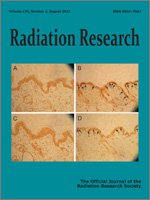Our earlier studies demonstrated the ability of l-arginine (l-Arg) to reverse radiation-induced immune dysfunction. The aim of the present study was to investigate cardiac dysfunction up to 24 h after 2 Gy of total-body irradiation (TBI) and its mitigation by l-Arg. The current studies also explore the association of radiation-induced inflammation and electrocardiographic (ECG) abnormalities. TBI-induced cardiac iNOS and kinin B1 R, changes in the ECG profile like bradycardia, increased RR interval, ST elevation and increased QRS duration at 4 h and 24 h after TBI. TBI with 2 Gy induced inflammatory responses in spleen and cardiac tissue. l-Arg administered 2 h after TBI (TBI l-Arg) mitigated the entire inflammatory response and ECG profile toward normalcy. l-Arg administered just before TBI (l-Arg TBI) could not reverse the above-mentioned changes. Radiation-induced inflammatory responses at 4 h and 24 h after TBI in spleen and cardiac tissue correlated with the changes in ECG profile at the corresponding time. The results suggest the ability of l-Arg administered at the correct therapeutic window to mitigate radiation-induced cardiac dysfunction at 4 and 24 h after TBI.
How to translate text using browser tools
10 June 2011
l-Arginine Mitigates Radiation-Induced Early Changes in Cardiac Dysfunction: The Role of Inflammatory Pathways
Jyoti Shukla,
Nazir M. Khan,
Vikas S. Thakur,
T. Balakrishna Poduval
ACCESS THE FULL ARTICLE

Radiation Research
Vol. 176 • No. 2
August 2011
Vol. 176 • No. 2
August 2011




